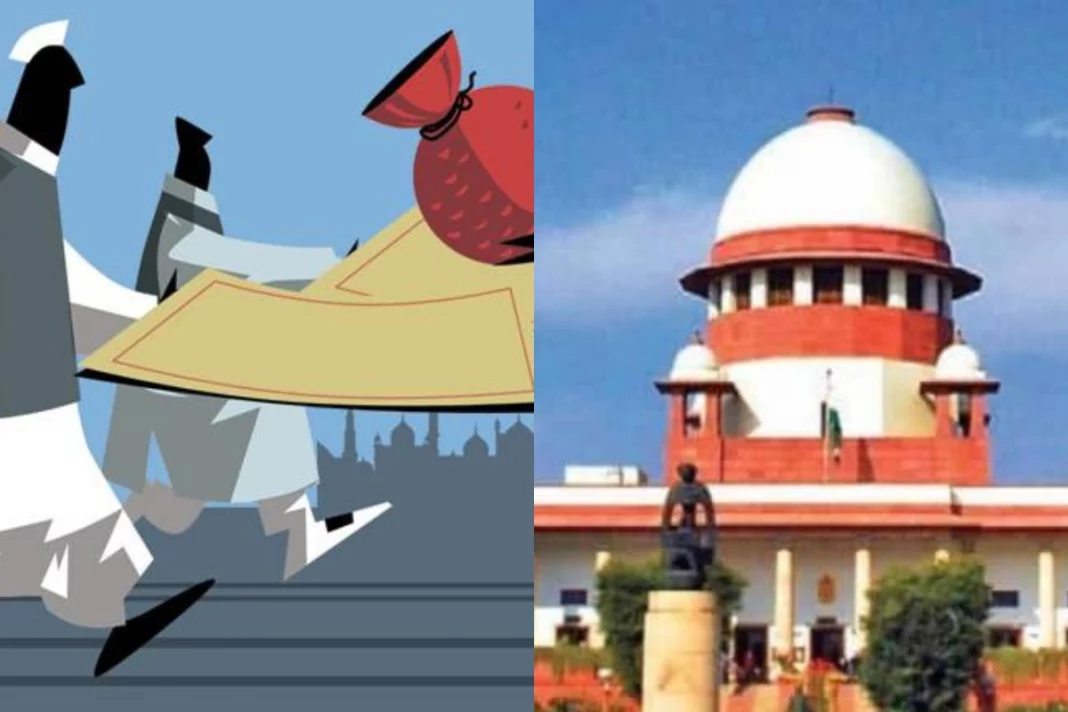Supreme Court: On Friday, the Supreme Court is set to hear a number of petitions contesting the regulations that allow political parties to be funded through the electoral bond programme. In an effort to increase transparency in political fundraising, electoral bonds have been proposed as a substitute for financial contributions to political parties.
The petitions filed by NGO, Association for Democratic Reforms, Communist Party of India (Marxist), and other petitioners are likely to be heard by a bench of Justices B R Gavai and B V Nagarathna.
Also Read: Makkah: Female Pilgrims Can Now Perform Hajj without a Male Guardian. Reports
Prashant Bhushan brought up the situation before former Chief Justice N V Ramana
On April 5, attorney Prashant Bhushan, representing the NGO, brought up the situation before former Chief Justice N V Ramana, stating that it required an urgent hearing due to its importance. The NGO’s appeal was scheduled to be heard by the top court, but it did not come up before any court.
On October 4 of last year, Bhushan requested an urgent listing of the PIL from the Supreme Court, asking it to order the Centre not to open any more windows for the sale of electoral bonds while the case involving the funding of political parties and the alleged lack of transparency in their accounts was pending.
Before the assembly elections in West Bengal and Assam this year, the NGO, which had filed the PIL in 2017 on the alleged issue of corruption and subversion of democracy through illicit and foreign funding of political parties and lack of transparency in all political parties’ accounts, had filed an interim application. It asked that the window for sale of electoral bonds not be reopened.
The NGO claimed that there is a serious concern that any additional electoral bond sales before the upcoming Assembly elections, including in West Bengal and Assam, would increase the illegal and illicit funding of political parties through shell companies. The NGO’s fresh application was submitted in the ongoing petition.
Also Read: Gold Price Today: Before Diwali, Buy 10g of Gold for Rs. 29758
On January 20 of last year, the Supreme Court rejected an NGO’s request for a temporary stay of the 2018 Electoral Bonds Scheme and asked the Center and the Election Commission for their comments.
On January 2, 2018, the government announced the Electoral Bond Scheme.
Election bonds may be purchased in accordance with the scheme’s regulations by individuals who are Indian citizens, entities incorporated or founded in India, or both.
A person may purchase electoral bonds on their own or in a group with other people.
Election bonds can only be received by political parties that are registered under Section 29A of the Representation of the People Act, 1951, and that received at least 1% of the votes cast in the most recent general election for the House of the People or the State’s Legislative Assembly.
The notification states that an eligible political party may only redeem electoral bonds through a bank account with an authorised bank.
The Supreme Court declined to block the Centre’s 2018 Electoral Bond Scheme in April 2019 and made it clear that it would give the cases a thorough hearing because the Center and the EC had brought “weighty arguments” that had “tremendous implications on the sanctity of the country’s electoral process.”
The government wanted to retain the anonymity of bond donors, while the poll panel argued that publishing donor names would increase transparency. The Center and the EC have previously taken opposing positions in court regarding political fundraising.
Keep watching our YouTube Channel ‘DNP INDIA’. Also, please subscribe and follow us on FACEBOOK, INSTAGRAM, and TWITTER


